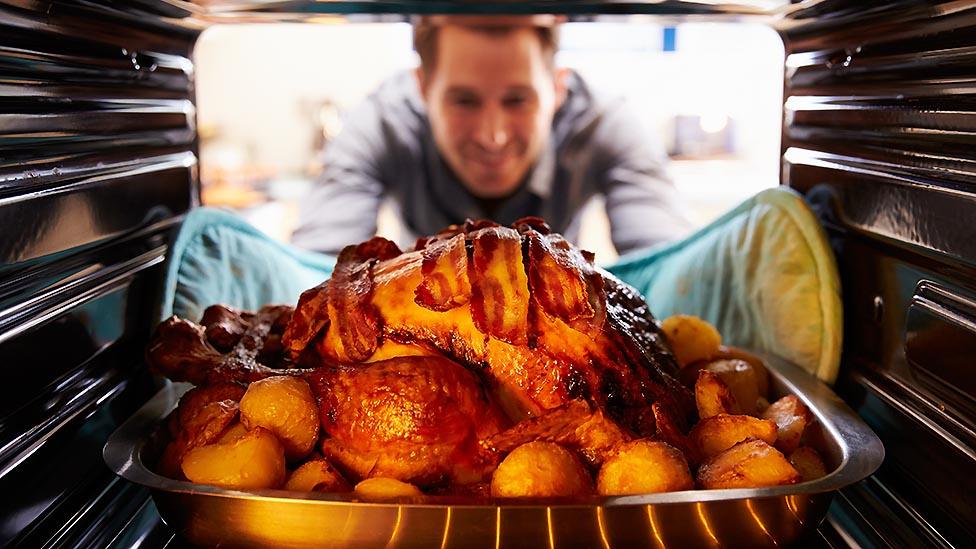Food waste: 'We talk about feeding bellies, not bins'
- Published
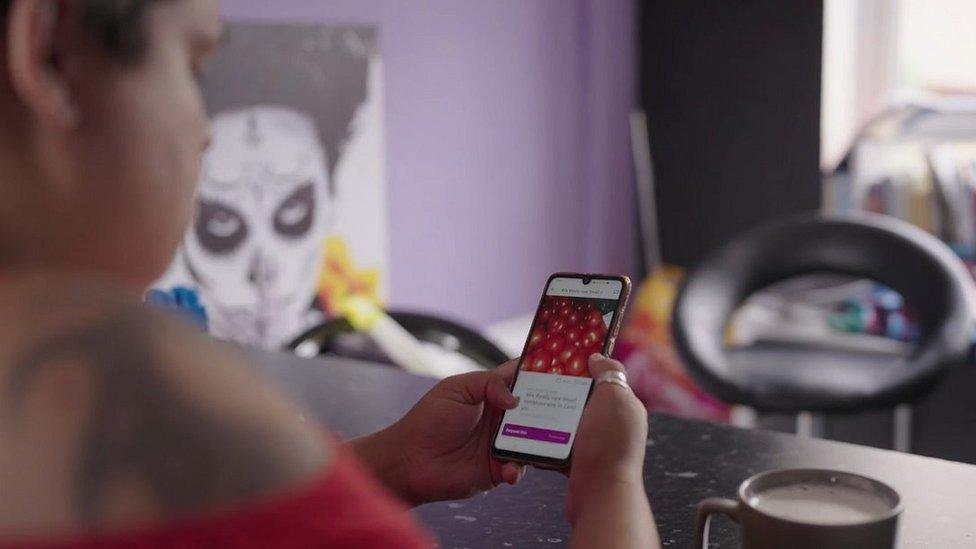
Apps including OLIO, Too Good To Go, Karma and NoWaste, are working to reduce the figure by offering a variety of solutions
As food prices continue to rise at record rates and families deal with increasing energy bills, many are left wondering how to put healthy meals on their tables each day. With shopping baskets rocketing in price at checkouts the BBC's We Are England film-makers have spoken to those using food waste apps and social enterprises to save money and eat more sustainably.

"My food bill used to be about £100 a week, now it's £150 a week with food prices going up, everything is going up", says Danielle Desousa.
The single mother has five young mouths to feed, with food price inflation jumping from 10.6% in September to 11.6% in October, according to the British Retail Consortium.
Danielle, who lives in Sheffield, says she has previously used food banks to assist with mealtimes, but found the experience "soul destroying".
"I felt like a really bad mum and I'd failed," she says.
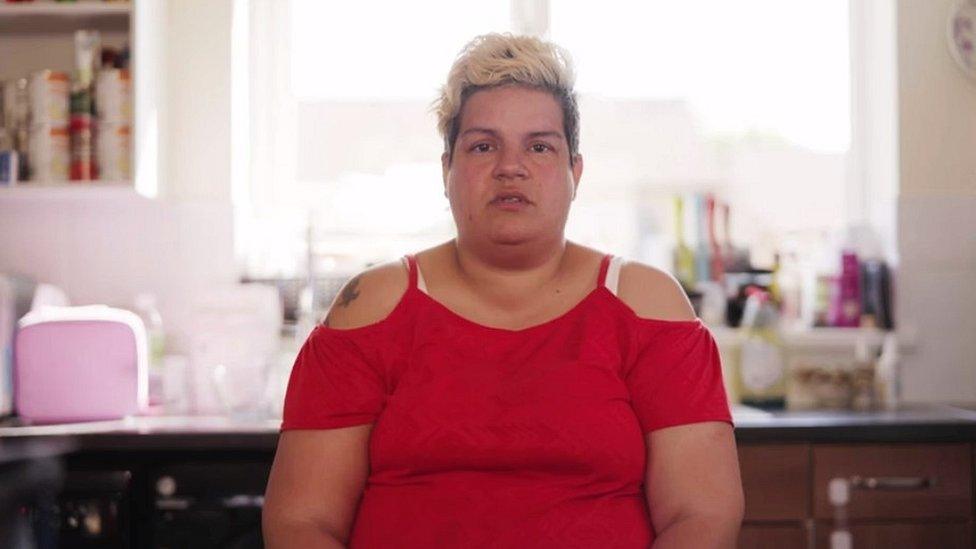
Danielle Desousa, a single mother of five, is using food waste apps to help fill the gap after her shopping bill rocketed
After her relationship ended, Danielle says she was two weeks away from any money coming in and didn't have sufficient food in the house to feed her children.
"I took to Google and typed in 'how to find food for free', that's how I came across a food waste app," she says.
"At first I thought, this is a con - it can't be real, you can't get food like this for free."
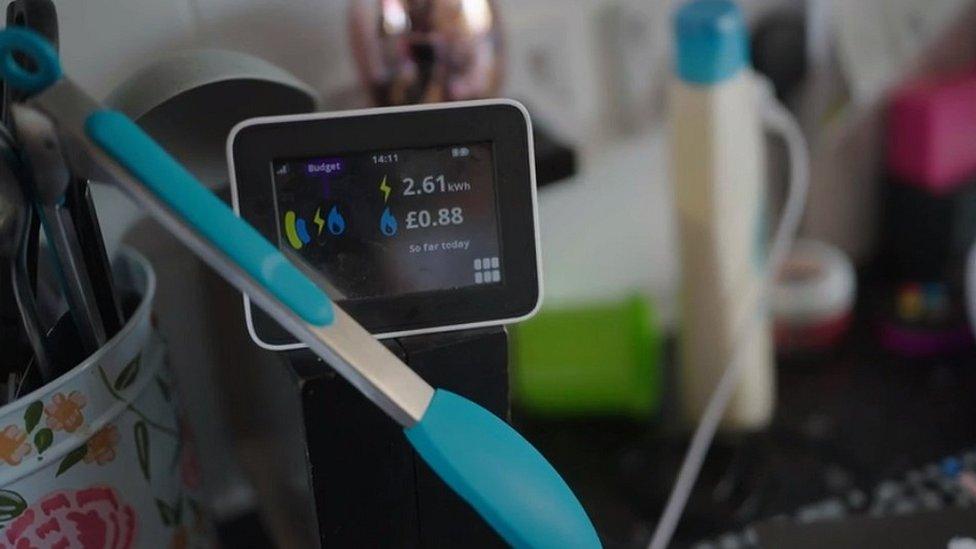
Food and energy prices have jumped, in part because of the Ukraine war, which has left many households facing hardship
According to the Department for Environment, Food & Rural Affairs, an estimated 100,000 tonnes of food, external - equating to 250 million meals a year - is edible and readily available but goes uneaten.
But apps including OLIO, Too Good To Go, Karma and NoWaste, are working to reduce the figure by offering a variety of solutions.
Danielle, who finds offers of food which would have otherwise gone to waste in nearby residents fridges and cupboards, hasn't looked back after her first use - a neighbour giving away unwanted sandwiches.
"I got home, I just stood there and cried," she says.
"I couldn't believe that I could feed myself and my children for a couple of days."
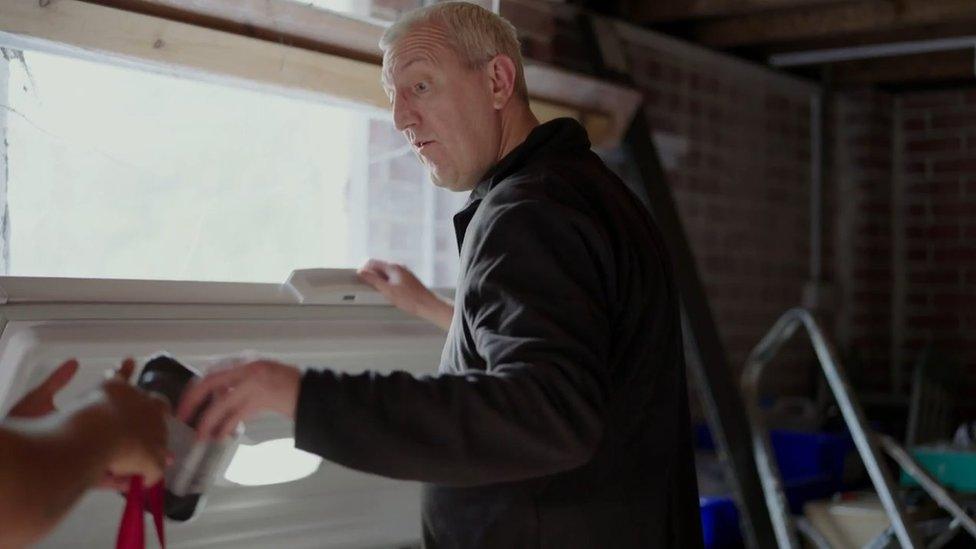
Richard Taylor, a food waste volunteer in Sheffield, visits supermarkets to pick up unsold items and then advertises them online for people to pick up
Richard Taylor, a food waste volunteer in Sheffield, picks up unsold items from supermarket chains three times a week and uploads images of the food to apps - many of which are snapped up within seconds.
"I get satisfaction out of doing it, saving items that are perfectly good from going to waste," he says.
"It's knowing that somebody local, on the next road for instance, will make use of it and going on a table - somebody's getting some food they may not otherwise have in these present times."

If you have been affected by any of these issues, you can visit the BBC's Action Line or contact the Samaritans, external.

In recent years, many community-led food waste solutions have emerged - including the Real Junk Food Project and the rise of 'pay as you feel' cafes cooking meals from ingredients which would otherwise be wasted.
One of which, the Refuse Cafe in Chester-Le-Street in County Durham, also provides cooking lessons to help people learn new skills and sells affordable food boxes.
"We talk about feeding bellies, not bins," says Bethan Hosker, who works at the cafe.
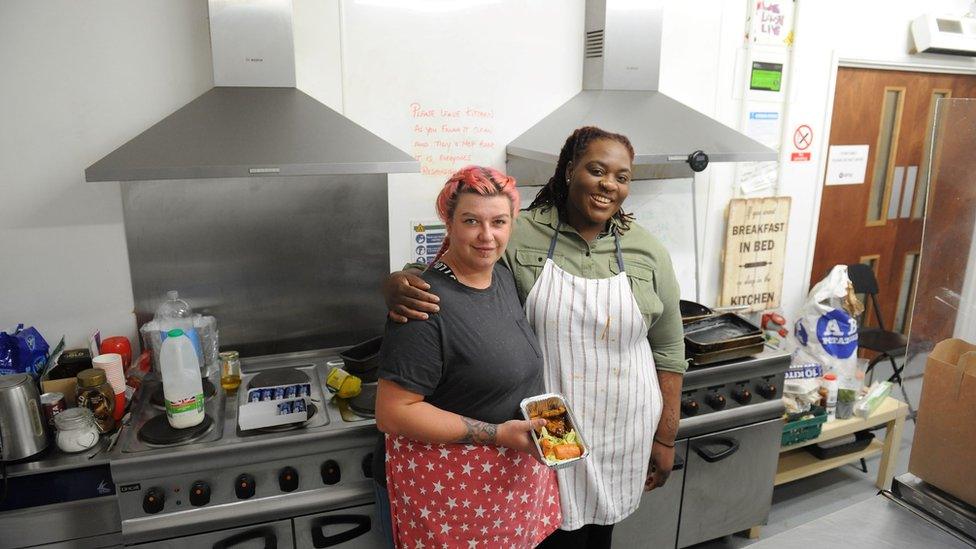
Ronnie (r) runs the Refuse Cafe cooking school, helping participants like Kamara develop their skills and secure employment in the catering industry
Through a variety of different sources, Bethan and the cafe team collect about 13 tonnes of food every month, with the ingredients collected influencing the cafe menu.
"None of us can really work out how much 13 tonnes is, but I can assure you looking around our warehouse 13 tonnes is a lot of food," she says.
Their waste-not box scheme, which provides a grocery box lasting approximately a week for £15, is open twice a week.
"It's all food that's been saved from landfill," she says.
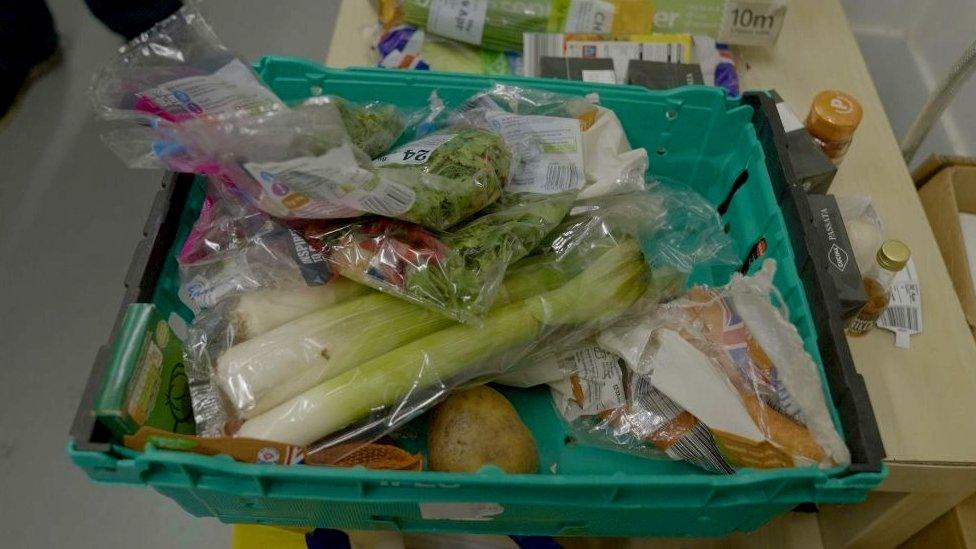
The cafe's waste-not scheme puts together £15 boxes of saved groceries for residents to pick up
Bethan hands some of the latest delivery to Ronnie, who is ready to lead a popular cooking class focused on how to create wholesome meals on a budget.
The classes are run by Handcrafted, a Christian charity, with participants learning to cook New Orleans BBQ pork during We Are England's visit.
"It doesn't have to cost a lot of money, it can be something worth a pound but because it's made with love it will taste good," says Ronnie.
"It's all about gaining that confidence and knowing that you have someone who believes in you, it's really important."
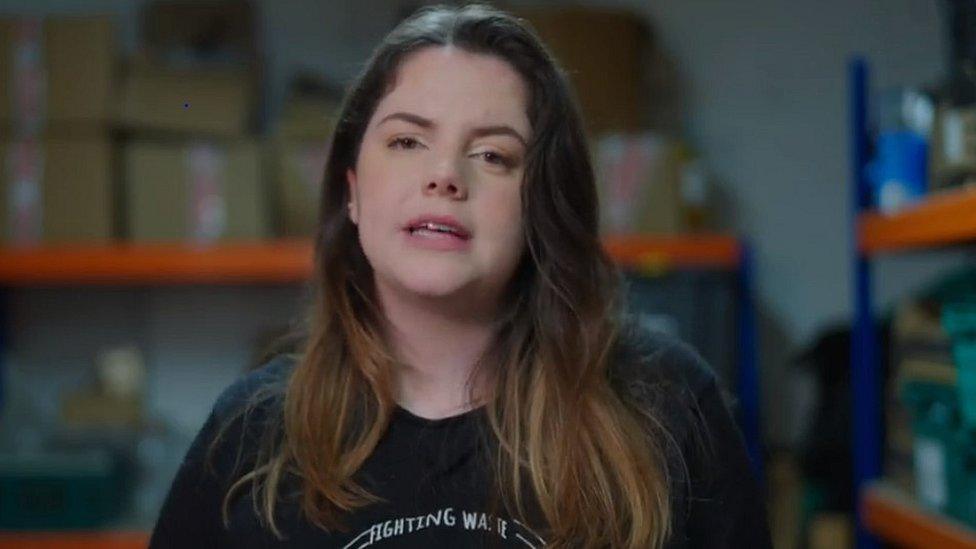
Bethan Hosker and the Refuse Cafe team collects about 13 tonnes of food every month
She continues: "We're able to cook something out of nothing and it tastes so good."
"Food is an amazing resource that can be used to feed people and build community, there's so much strength in that," Bethan adds.
Bellies Not Bins will be broadcast on Friday 4 November at 7.30pm on BBC One in Yorkshire, the North East & Cumbria, the North West and Lincolnshire and will be available on the iPlayer straight after.

Related topics
- Published2 November 2022
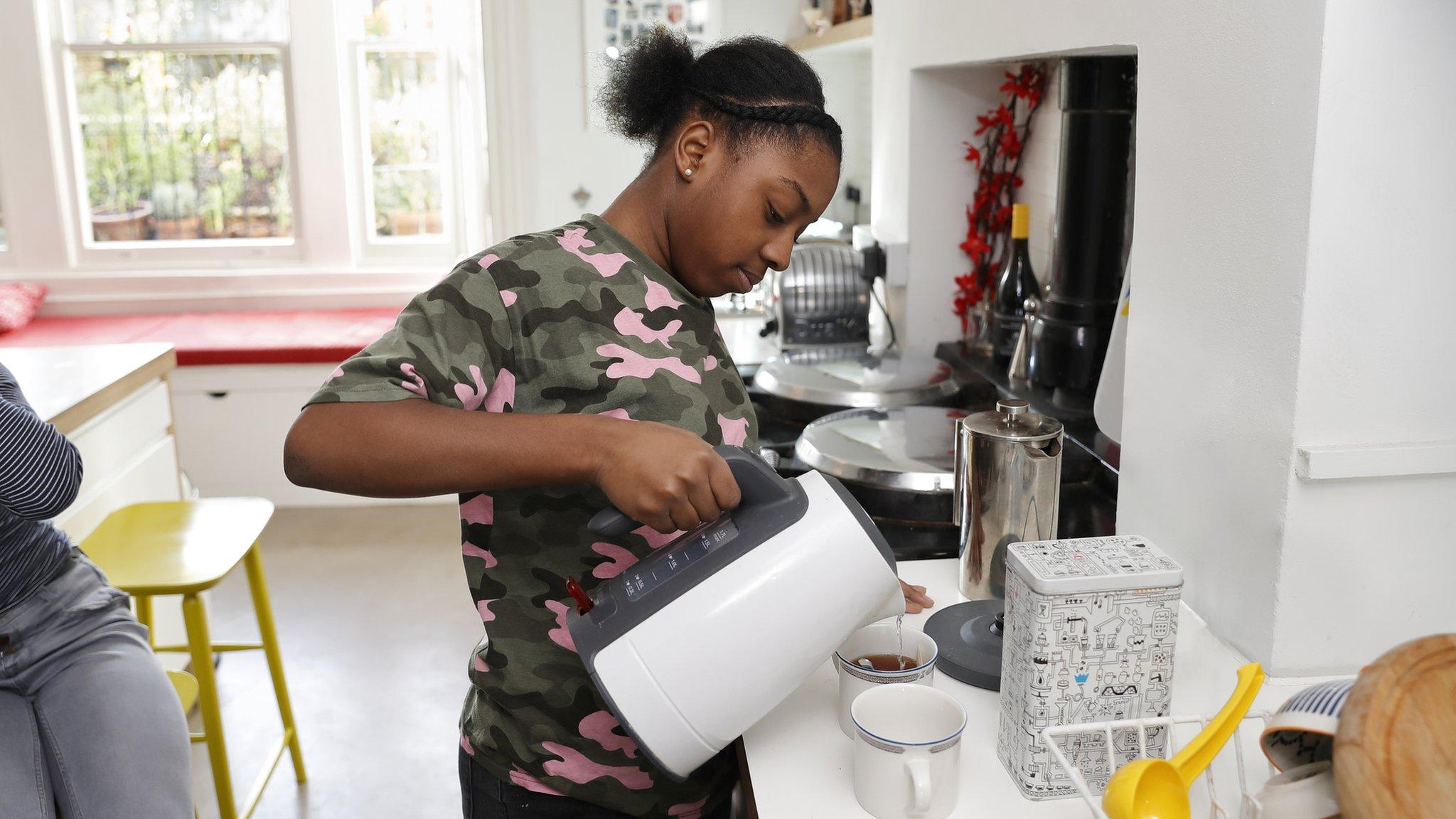
- Published7 October 2022
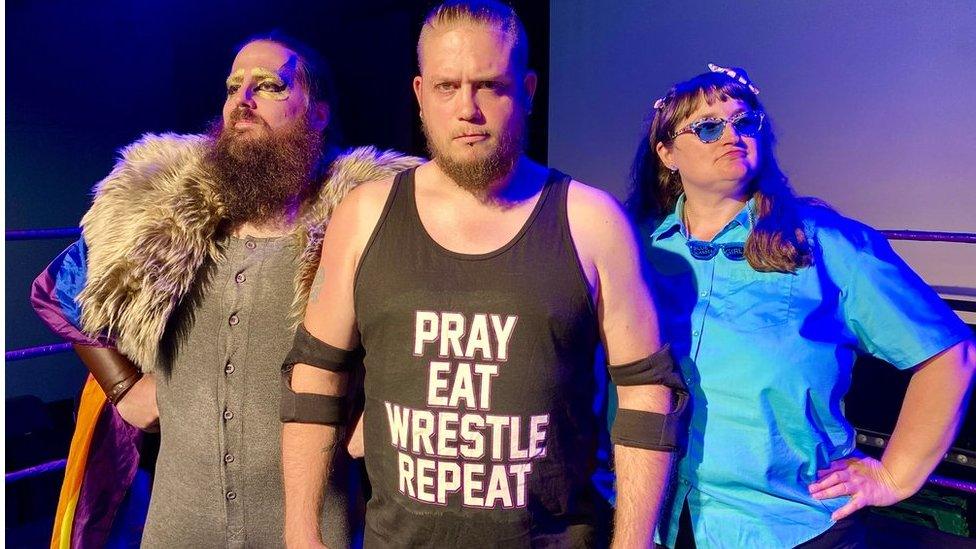
- Published16 December 2021
